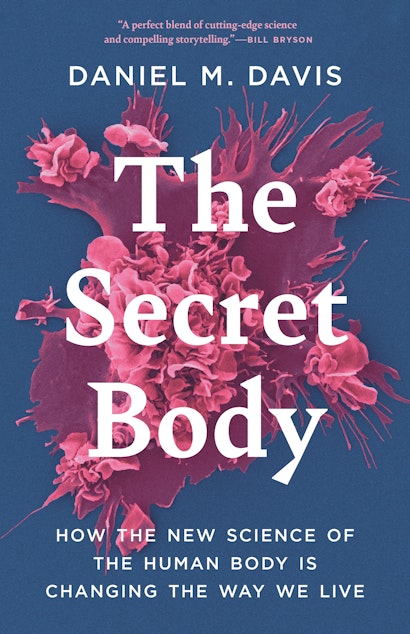New science of the human body is changing our lives. In The Secret Body, leading scientist Daniel M. Davis looks across six frontiers鈥攃ells, the embryo, the body鈥檚 organs and tissues, the brain, the microbiome, and the human genome鈥攚here revolutionary new understanding is emerging. He argues that these new discoveries will soon affect our day-to-day lives, as well as our overarching sensibilities and aspirations.
What led you to begin this book?
DMD: It was one person鈥檚 story鈥擱uby鈥檚 story. She had a genetic test, which changed her life. And it occurred to me that, surely, every one of us is susceptible to some disease or other to some extent. Which means that as science progresses and we learn more and more about the human body鈥擳he Secret Body, if you will鈥攚e will all be able to access complex information about our own susceptibilities to illness, which play games with our mind and our identity, and require us to make difficult decisions about our health and how we live.
While researching and writing this book, what inspired you the most?
DMD: I found countless areas of science that I discuss in the book to be deeply inspiring. What we are now learning about the human brain, or about how embryos develop, is surprising and wonderful. Also, the way in which science happens is another source of inspiration to me. One journey that I chart, for example, begins with a family collecting jellyfish in the 1970s, moves to a scientist hearing a talk in New York in 1989, and then to two unemployed friends building a new kind of microscope at home in a living room. Eventually, this leads to new views of human cells. In my own lab, I use these microscopes to study the immune system.
Why do you think this book is important?
DMD: I hope this book works in three ways. First, there鈥檚 the splendour of it all鈥攖he wonder in new science of the human body. Then there are the stories of how we have achieved all we know. Progress happens in lots of different ways, but often begins with an advance in technology. Third, but perhaps most importantly, we need to think deeply about what all these new discoveries mean for our lives. For example, imagine having a personalized understanding of your individual genes, organs, and cells, so that you know you have say, a one in four chance of developing a particular illness in five years. At what point would you decide to take a medicine as a precaution, or undergo a preventative operation, knowing that the medication or operation carries its own risks? With this information would you feel a victim? Would your sense of identity be affected? Or to have a diet tailored to you personally, based on analysis of your microbiome. We need to think about how we are going use all kinds of new and emerging health information. There are implications here for health insurance, of course. But also for our psychology, for an individual person鈥檚 sense of self and for society鈥檚 view of human diversity.
Who did you have in mind for reading this book?
DMD: Hopefully I wrote this book to be accessible to anyone. During the pandemic, we have seen a big increase in the number of biologists coming forward to discuss their work in public. As things move forward, I think it鈥檚 important that this expands even more. Science frames our lives in so many ways. I think we must embrace science, and especially human biology, as a vital part of our culture even more than we do now.
av福利社 the Author
Daniel M. Davis is professor of immunology at the University of Manchester. He is the author of The Beautiful Cure and The Compatibility Gene. He lives in Cheshire, England. Twitter @dandavis101

